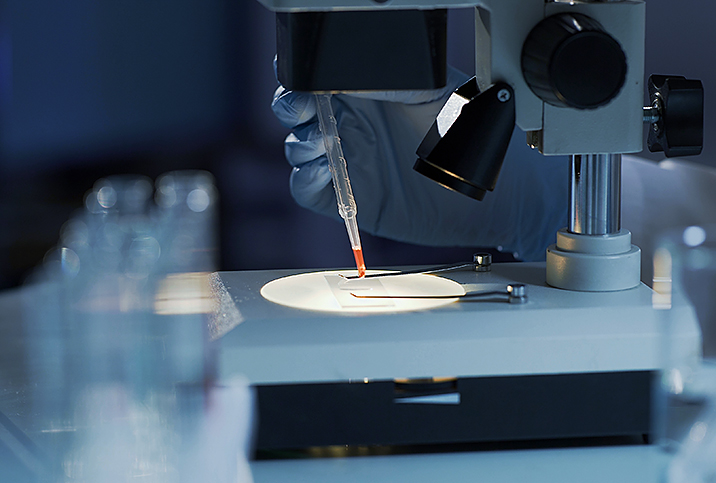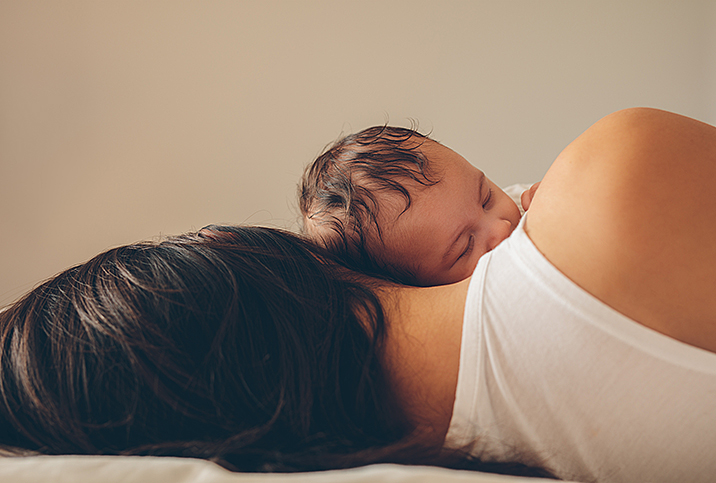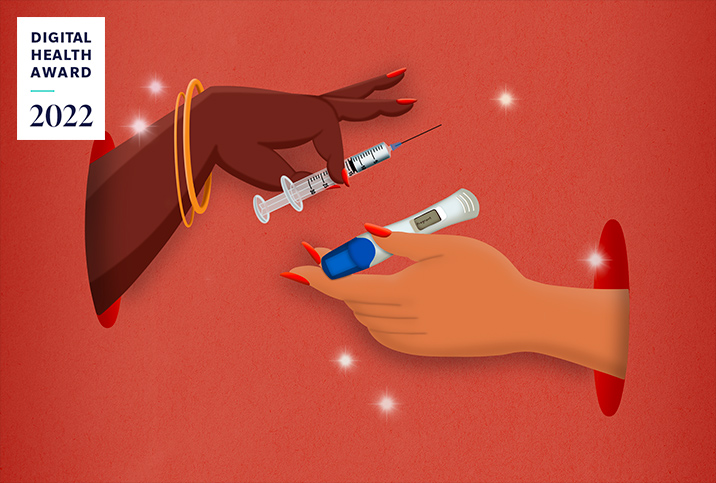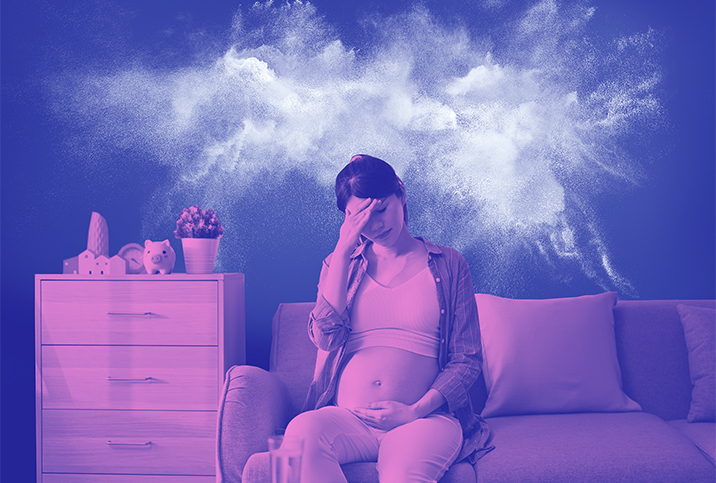The RSV Vaccine May Protect Mothers and Their Babies

About 58,000 children ages 5 and younger are hospitalized every year for an illness known as respiratory syncytial virus (RSV). Scientists have been working hard to come up with a plan for decreasing these numbers, namely, a safe vaccine. Currently, there is none.
However, researchers have had promising results from a 2022 study administering a bivalent, protein-based vaccine to pregnant women. It was effective in vaccinating them against RSV and passively protecting their infants through the transfer of antibodies.
Kimberly Center, M.D., senior director of vaccine clinical research and development at Pfizer and lead clinician on the study, saw firsthand how severe and unpredictable RSV illness in infants can be. In her background as a pediatric infectious disease specialist, she experienced the frustration that comes with not having targeted treatments for RSV.
Center and her team focused on 406 women, about 80 percent of whom received the bivalent RSV prefusion F protein-based vaccine. The results indicated the RSVpreF vaccine passed on antibodies to the babies and showed some promise in protecting those babies from severe RSV illness.
The study was not meant to assess if and how well the RSV vaccine effectively protects babies, Center cautioned, but it does suggest the antibodies produced by maternal immunization can prevent severe RSV illness in babies.
"This is a preliminary result based on a small number of cases, and we will have to wait for the phase 3 study data to be analyzed since that trial is truly powered to evaluate the efficacy," Center said. The phase 3 trial is ongoing.
What the vaccine study means for babies
A highly contagious virus, RSV causes cold-like symptoms such as runny nose, congestion and cough. RSV is more common at certain times of the year, tending to begin in the fall and continue into the spring months in the United States. Most people, adults especially, can get through an RSV illness without any issues. The same isn't true for many infants.
"RSV is the single most important reason for hospitalization in infants and young children," explained Federico Laham, M.D., the medical director for Orlando Health Arnold Palmer Hospital for Children Infectious Diseases & Immunology. He was not involved in the research.
Laham said most children are infected with RSV before age 2. But some are at greater risk of being hospitalized or having long-term health concerns such as asthma and allergies, particularly children who are born premature, are younger than 6 months, or have a weakened immune system or respiratory condition.
The risk to infants is higher when they are born about four months before the start of the RSV season, Laham explained
Finding a solution
There is no approved vaccine for RSV for either adults or children. Past attempts at developing a vaccine in the 1960s resulted in deaths when vaccinated babies contracted RSV. Another issue is babies, in general, just don't make very good antibody responses, which is why they rely mainly on passive immunity from their mother, Laham said.
For the highest-risk infants, a monoclonal antibody injection, palivizumab (Synagis), is an option. While this treatment is effective, it's also expensive, running about $10,000 per injection, which needs to be given once a month through the RSV season, or about five doses, Laham explained. The injection doesn't do anything for the bulk of RSV disease in infancy, he said. In other words, it's just not feasible to give monoclonal antibodies to every infant in the U.S. and the rest of the world.
A third option—the one Center and her team have been working on—is to vaccinate pregnant women against RSV.
"Because protective antibodies are naturally passed from the mother to the infant as early as the second trimester, we felt maternal immunization would be the best approach to offer protection for infants," Center said. "This data, along with the positive safety profile, supported the initiation of our phase 3 trial, which is powered to establish efficacy."
Antibodies typically last six to nine months in infants, but premature infants can get fewer antibodies passed on since they had less time in the mother's womb, Laham said. And maternal antibodies eventually go away, which means a longer-lasting solution such as immunizing infants directly is the ultimate goal. Medicine is getting closer, according to Laham.
In the meantime, passive immunity is "the holy grail," Laham said. It won't prevent all serious RSV infections and it's temporary, but it could dramatically decrease the number of hospitalizations and deaths in the youngest babies. RSV vaccines have been long anticipated across decades of intense research and stringent safety protocols, according to Laham.
"Early infection with RSV may cause long-lasting effects on the lungs," Laham explained. "If you could postpone that infection or avoid it in the first months and first two years of life, we may not see that high burden of recurrent wheezing and asthma, as we are seeing now."


















